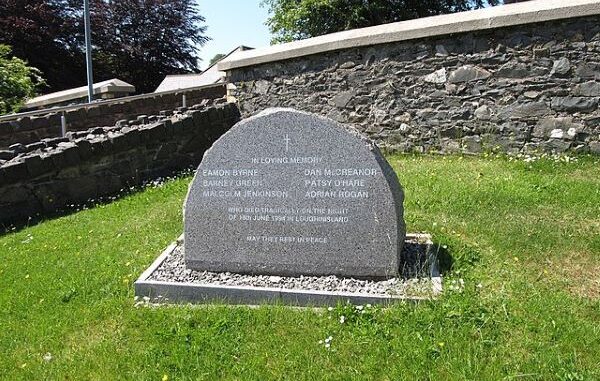
Three police forces are found to have spied on Northern Ireland journalists Trevor Birney, Barry McCaffrey and Vincent Kearney. The same police spied on an un-named Northern Ireland Police Ombudsman employee. The police forces were the Police Service of Northern Ireland (PSNI), the (London) Metropolitan Police, and Durham Constabulary.
The United Kingdom (UK) Investigatory Powers Tribunal has made the finding Birney and McCaffrey were spied on because they made the documentary ‘No Stone Unturned’. This investigated the Loughinisland Massacre of 1994. The sectarian, loyalist paramilitary Ulster Volunteer Force (UVF) attacked a country pub in Co Down. Six civilians, all Catholics, were killed.
Birney and McCaffrey were arrested in 2018 for theft because two documents from the Police Ombudsman’s Office had been leaked to them. The documents were used in the documentary. The charges were subsequently dropped. Police were forced to pay damages to both.
Their arrests then led to the Tribunal hearings. Its findings disclosed alarming attitudes among police. Darren Ellis of Durham Constabulary was brought in to find who had leaked the documents. He called the two journalists “criminals and thieves”. Alarmingly, it was recorded that “The Tribunal should infer that Mr Ellis held sectarian views that he attributed in correspondence to a senior officer of PSNI.” Ellis disagreed with a PSNI decision not to seek a court injunction to stop further screening of film. He met with the Northern Ireland Law Society to complain that solicitors for Birney and McCaffrey robustly defended their clients.
The Police Ombudsman has earlier found the Royal Ulster Constabulary’s (RUC) investigation into the 1994 pub massacre was undermines by a wish to protect state informers. These included informers who took part in the massacre. The RUC was the forerunner of the Police Service of Northern Ireland.
Birney and McCaffrey were the only people ever arrested in connection with the Loughinisland massacre. Police have never shown the same urgency in investigating the murders.
The reason for arresting the journalists went beyond intimidation. Police hoped that, on release, the journalists would phone their source. Police could then arrest that person.
The case reminds us policing in the North of Ireland is still repressive. The purpose is to protect the state and ruling class capitalist interests, using whatever means needed. That role for the police remains, for all the ‘reforms’ carried out since the 1998 Good Friday Agreement which brought a formal end to the decades-long armed conflict in the North (the ‘Troubles’). Sinn Féin support for the PSNI has not changed that.
That ultimately repressive role feeds in to reproducing some very unhealthy attitudes. Police management tolerates and even encourages these attitudes. As Ellis’ comments show, attitudes outside the North can be even more reactionary.
Such attitudes flourish in the current situation. There is no democratic control of policing by working class communities, and policing remains political. And, without the right to unionise, police cannot push back against reactionary pressures from management.
